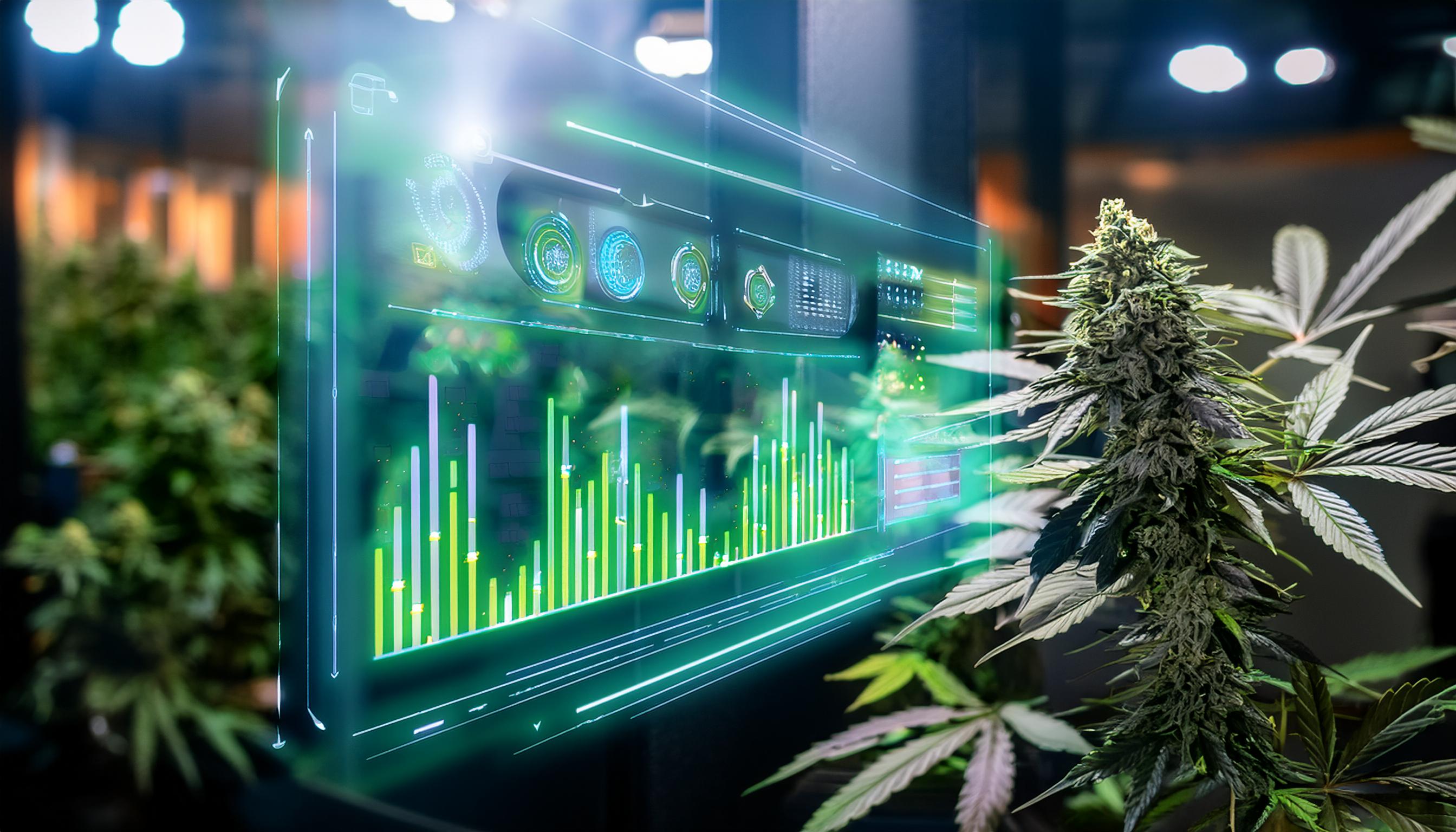The Role of AI and Data Analytics in the Cannabis Industry
Jul 29, 2024
The use of data analytics is becoming more and more crucial as the cannabis industry grows. These tools aid companies in decision-making, improve customer understanding, and maintain an advantage over rivals. Let's examine the ways in which data analytics is influencing the cannabis sector.

Build Your Cannabis Dream
Your Dispensary Awaits. Make It Happen.
Dr. Green provides everything you need to open your own cannabis dispensary and thrive in this booming industry. Don’t wait, step into the future today.
Market Overview
The market for legal marijuana is expanding significantly. It is projected to expand at a rate of 25.7% yearly to reach $102.24 billion by 2030 according to a new study by Grand View Research, Inc.
The introduction of new products and the growing legalisation of marijuana for both medical and recreational purposes are the main drivers of this expansion.
Obstacles in the Cannabis Sector
The cannabis industry still confronts a number of obstacles despite its growth:
Fierce rivalry and little difference between products.
Complicated and multifaceted laws.
Large costs associated with marketing.
Cash flow problems.
In addition, customer preferences are changing, and complicated circumstances like as the COVID-19 pandemic have increased. Numerous of these problems have remedies provided by data analytics.

Open Your Own Cannabis Dispensary
The Future of Cannabis Is Yours to Build.
Dreaming of owning a dispensary? Dr. Green gives you the tools to make it happen. Don’t wait, start your cannabis revolution now.
Key Areas Transformed by Data Analytics
1. Understanding Customers
Analysing data from social media, websites, and sales platforms can reveal important information about the behaviour of customers. By doing this, companies may better understand their target market and develop goods and marketing tactics that better suit their needs.
2. Real-Time Sales Tracking
Monitoring sales data becomes essential as businesses launch new goods and enter new markets. Which products are in demand, where they are selling the best, and via which channels may all be determined using data analytics. This aids companies in making prompt, well-informed judgements.
3. Predicting Market Trends
Data analytics predicts market trends, which helps businesses remain ahead of the curve. It is capable of risk assessment, competitor monitoring, and opportunity identification. This helps companies to remain competitive and make proactive decisions.
4. Handling Regulations
There is strict regulation of the cannabis business. Processes related to compliance can be streamlined and made more effective with data analytics. Additionally, by anticipating possible compliance concerns, it enables businesses to take action before they worsen.
5. Developing New Products
Restrictions imposed by regulations may hinder cannabis industry research. On the other hand, customer data analysis can yield insights that direct product development. Businesses can innovate and satisfy market demands with the aid of customer feedback.
6. Improving Distribution and Marketing
The complexity of marijuana distribution legislation varies among regions is increased. Businesses can improve their marketing and distribution strategies by uncovering trends in customer behaviour through the analysis of online sales data.
7. Reducing Risk
Risks can be managed along the whole supply chain with the use of predictive analytics. It can reduce uncertainty and assist organisations in making better decisions by optimising inventory, forecasting sales, and improving supplier networks.
8. Enhancing Operations
By identifying the ideal growing conditions, data analytics helps enhance the cultivation of cannabis. Costs can be decreased and product quality and consistency can be increased by analysing variables like temperature and humidity.
Start Your Cannabis Dispensary Today
Take Control of the Cannabis Industry’s Future.
Turn your dispensary dream into reality with Dr. Green’s expert support. Everything you need to succeed is just a click away, start your business now.
Conclusion
The cannabis market is being revolutionised by data analytics. These solutions may optimise every step of the value chain, from customer service to horticulture, increasing income and lowering expenses.
Businesses that use data analytics will have a major competitive advantage.
The cannabis sector has a bright future ahead of it, and those who make the most of data analytics will be at the forefront of this fascinating change. Who will take full use of this chance is the question.
